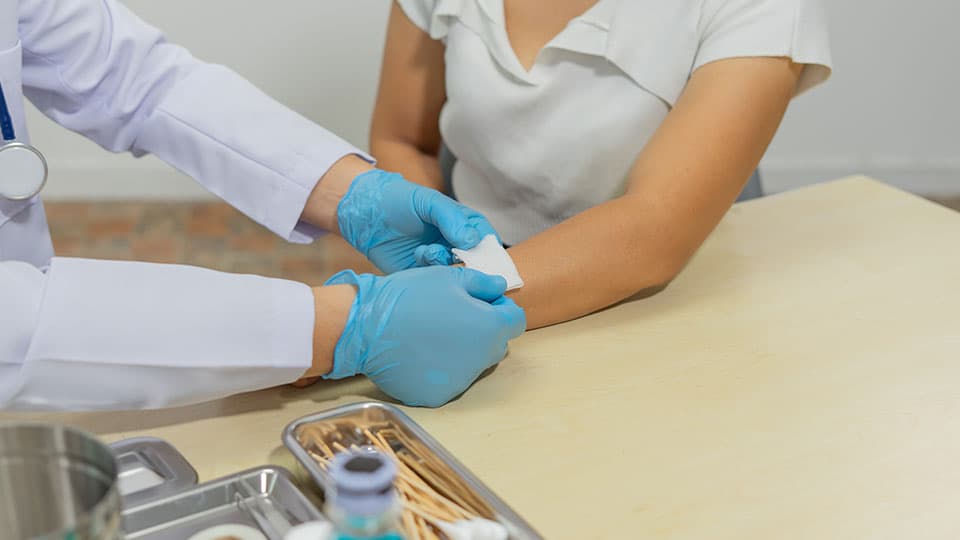The new partnership seeks to identify technologies capable of monitoring and treating wound infections at the same time.
The collaboration is funded through the Academy of Medical Sciences’ international Networking Grants. This one-year initiative, entitled 'Establishing a roadmap for the advancement of wound pathogen detection and treatment through the utilisation of microneedle technology,' is co-led by Dr Diganta B. Das (Loughborough University) and Professor Mostafa Mabrouk (NRC, Egypt).
Dr Diganta B. Das, the UK Lead Investigator and Reader in Porous Media at Loughborough University, said of the new partnership: “This network is about solving a pressing clinical problem in low and middle-income countries in response to the UN’s Sustainable Development Goal, which aims to identify and treat wound infections quickly.
“By pooling Loughborough’s strengths in transport phenomena and device design with NRC’s biomaterials and preclinical expertise, we aim to build the roadmaps, protocols and partnerships that turn promising microneedle concepts into real-world clinical impact.”
Professor Mostafa Mabrouk, Overseas Lead Investigator, added: “Our track record with Loughborough, spanning an edited book and more than a dozen joint papers, gives this new network a strong foundation to move rapidly from ideas to prototypes and trials.”
This activity builds on past joint work between Loughborough and NRC, including:
- Daniel Turnberg Travel Fellowships (2019) “Bio-plotting of nano-particulates for managing critical bone defects”, which brought Professor Mabrouk to Loughborough for a three-month fellowship. Professor Mabrouk is Loughborough University’s sole recipient of a Daniel Turnberg award to date.
- NRC-funded biomaterials programmes (2019–2022): (a) Formulation of chitosan/nano-Ag/nano-ZnO hydrogel for improved wound healing (PI: Dr Mona Moanees), (b) Nerve tissue engineering through 3D porous scaffolds, hydrogel-enriched chitosan containing nanomaterials (PI: Professor Hanan Beherei).
The Loughborough–NRC project forms part of the Academy of Medical Sciences’ 2025 international programme, connecting UK researchers with partners in over 30 countries through the Networking Grants and Network Strengthening Grants schemes. These schemes are designed to catalyse new cross-border collaborations tackling urgent health priorities.
Over the next 12 months, the network will convene thematic workshops at Loughborough and the NRC in Egypt, focusing on microneedle design, biosensing, antimicrobial drug delivery, manufacturing scale-up, preclinical models and clinical pathways.
They also hope to co-develop roadmaps for rapid wound pathogen detection and localised treatment via microneedle technologies, aligned with regulatory and translational needs.
